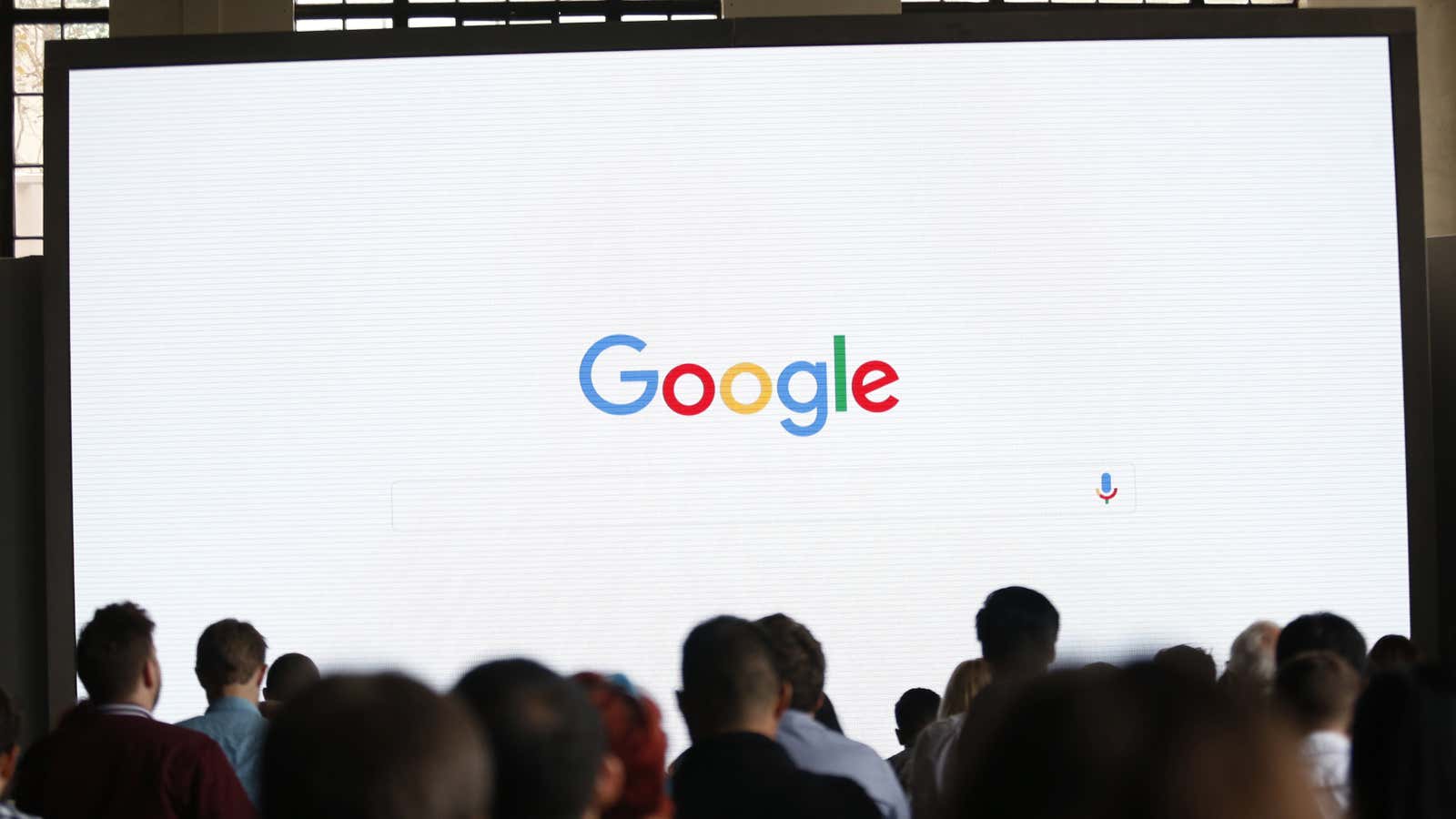The British government and its music and film industries, in an attempt to suppress internet search results that lead users to pirated material, have held private talks with Google and other search companies for years. Last month, they reached a “landmark agreement” that eschewed the need for legislation and instead relies on a voluntary code of conduct that the search engines promised to follow.
The code of conduct, partly designed by the music and film industries and agreed to by Google and Microsoft’s Bing, wasn’t made public. It’s an example of what the Electronic Frontier Foundation (EFF) calls a “shadow regulation“—or rules imposed on companies without the involvement of the legislative process. I obtained a copy of the code through a Freedom of Information Act request to the UK government’s Intellectual Property Office (IPO), and so did the EFF and TJ McIntyre of Digital Rights Ireland. We all got the same information, and you can read the full text here (pdf).
The terms of conduct are meant to ensure that pirated material gets demoted in search results, and elsewhere, including in ads and auto-complete phrases. The IPO will assess the code’s enforcement and effectiveness and, if the results are lacking, potentially recommend stricter regulations.
As the EFF points out, the IPO redacted much of the detail in the code shared with us. The IPO told me it was on grounds that some of the information from the parties involved was shared with the IPO confidentially or reduce the effectiveness of the anti-piracy measures, or on the basis that public interest was best served by keeping the information unpublished.
But there are still a few informational gems to be found. For example, buried in the footnotes (pdf, paragraph 10) is this nugget:
A site is considered to have received over [REDACTED] DMCA notices if the relevant search engine has
received any number of individual notices which between them list [REDACTED] or more infringing URLs in
aggregate. There is no fixed time period which is considered to constrain progress toward this total, but where
such notices are considered historical and the nature of a site has changed so that it is no longer structurally
infringing, it may be considered appropriate to dis-apply the amassed total.
All parties acknowledge that domains in receipt of less than [REDACTED] DMCA notices may also be considered infringing under copyright law, regardless of the fact that they are not relevant for the purpose of this metric
In other words, there’s a magic number of takedown notices, for a specific site in question, that will force Google and Microsoft to act. Once that number is hit, under the terms of the code of conduct, they have to demote the site in their search results. Of course, the redactions mean we don’t know what that magic number is, or what a demoted search result would look like.
The rights holders are happy with the outcome of the talks. The head of the British Phonographic Industry trade group called it a “a world-first” that would help fans find legitimate sources of music.
But there’s doubt that the most important player in this, Google, which has 91% of the UK’s search engine market according to StatCounter, is making any substantial changes. Google already has a “pirate algorithm” that ranks results partly based on the number of takedown notices a site has received. It told trade publication Search Engine Land that it wouldn’t make significant changes to this algorithm after signing on to the UK’s code of conduct. The agreement is just a way to test the effectiveness of its existing measures, it said.
I’ve contacted Microsoft and Google to ask how the code of conduct will impact their users in the UK. Microsoft gave me a statement saying: “We are pleased to have reached agreement on this code of conduct for search-related copyright issues, and we thank the UK government for leading this industry-wide initiative forward.” I’ll update the story with Google’s response if I receive one.
There’s a June 1 deadline for the IPO to decide if the search engines are doing a good enough job demoting links to pirated material under the new code of conduct. If the search firms fall short of the benchmarks (these too were redacted, so we don’t know what they are) the regulator would recommend additional action, which could include new laws. That could mean a heavier regulatory burden for Google and Microsoft. As the EFF points out: “[Google] must be very careful that its acquiescence to this shadowy regulation doesn’t escalate into a series of capitulations to copyright holder demands.”
